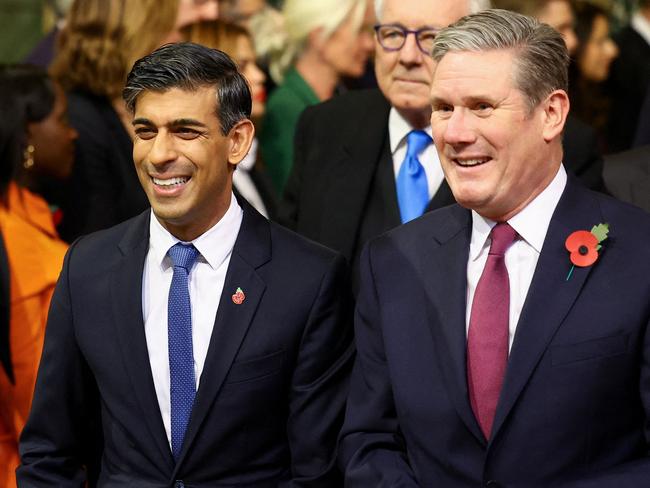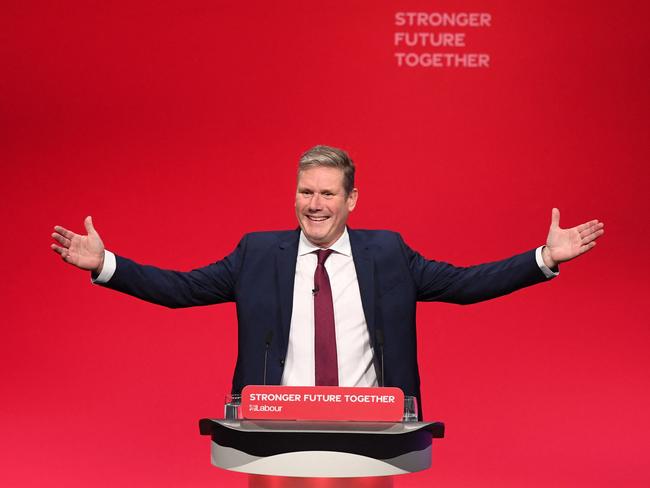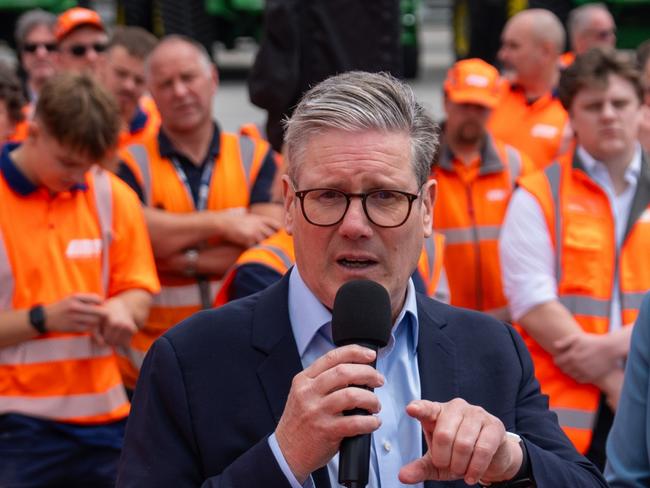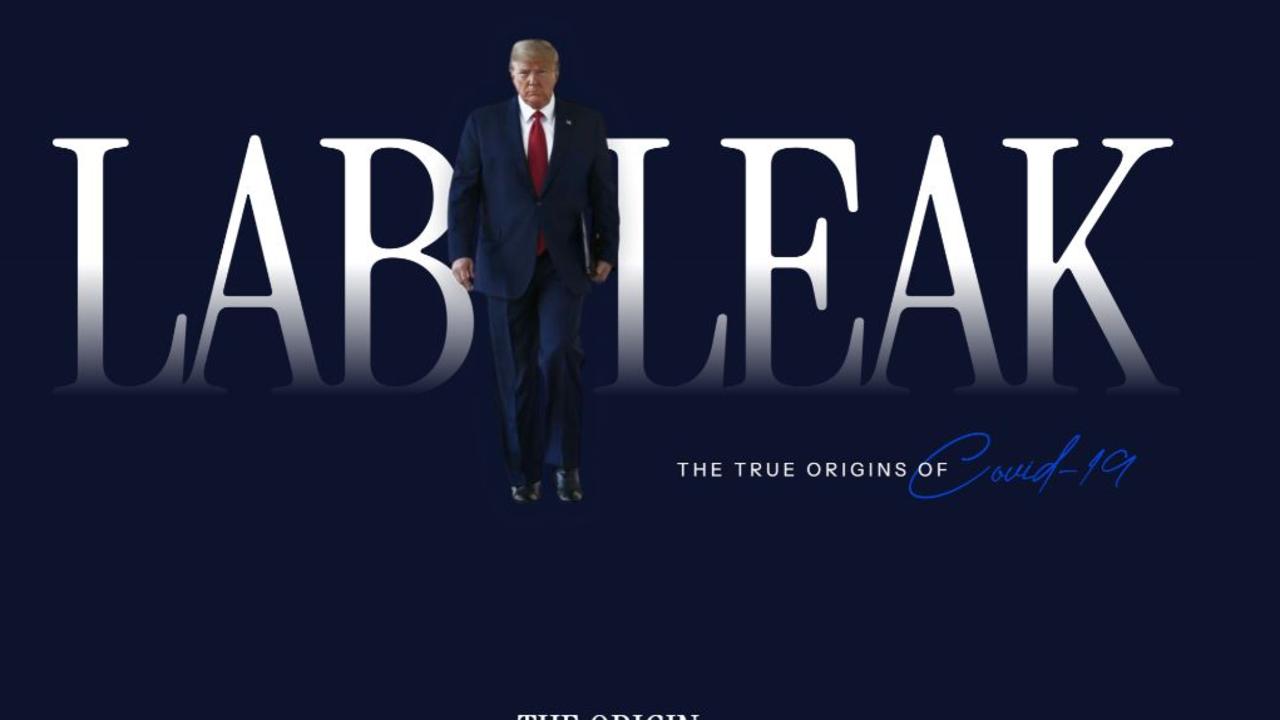Keir Starmer poised to claim landslide victory for Labour Party in UK election
The Labour Party leader looks poised for a landslide victory in the UK election, yet there is still a lot to be learned about him. This is who he is and what it will mean for Australia if he’s elected.

World
Don't miss out on the headlines from World. Followed categories will be added to My News.
Polls are predicting a landslide victory for the Labour Party when the UK votes on Thursday, July 4. According to some predictions, the Tories could be left with as few as 72 seats in the 650-seat House of Commons, and Labour leader Sir Keir Starmer will enjoy a majority even larger than Tony Blair did when he came to power in 1997.
Blair was known for his charisma, which is not a word many have chosen to describe Keir Starmer. “Solid” might be closer to the mark. “Captain Crasheroonie Snoozefest” is how Boris Johnson once described him.
When the BBC asked British voters to think of a word to describe what they thought of Starmer in October last year, the most common response was “nothing”.
So just who is Sir Keir Starmer, this man about who so many people know so little?

THE BASICS ABOUT KEIR STARMER
Keir Starmer was born in London in 1962, at the tail end of the Baby Boomers. If he wins on July 4, he will at age 61 be the oldest newly-elected UK prime minister since James Callaghan in the late 1970s. (Current Prime Minister Rishi Sunak was 42 when he got the top job; David Cameron and Tony Blair were both 43.)
He was a barrister before politics and has represented the inner-city London constituency of Holborn and St Pancras since 2015. He rose to prominence as Shadow Minister for Brexit when Jeremy Corbyn was Labour leader.
He’s been married since 2007 to NHS worker and former lawyer Victoria Alexander, 49. While she is known for cutting a glamorous figure, she’s also famous for being fiercely low-profile – and that sense of privacy the couple has extended to their children (a son, 15, and a daughter, 13), whose names have never been released.
While Starmer has no religious affiliation, his wife is Jewish and the children are being brought up in that faith.


WHY IS HE ‘SIR KEIR’?
While many British prime ministers have had knighthoods, in most cases they were conferred after their tenure as leader. Sir Keir Starmer would be an exception: he was knighted in 2014 for his services to law and criminal justice, as head of the Crown Prosecution Service.
HOW LONG HAS HE BEEN LABOUR LEADER?
Starmer became leader of Britain’s Labour Party in April 2020, after the electoral thumping the party received at the 2019 election under the leadership of the far left firebrand Jeremy Corbyn. With more centrist policies, support for Labour has soared while British voters have voiced their displeasure at a string of Conservative Party scandals, a revolving door of Prime Ministers, and the cost of living crisis.
WHAT IS STARMER PROMISING TO DO?
“No tax rises for working people” is the pledge Starmer has made again and again on the hustings.
But overall, Labour is taking a cautious approach and has not committed itself to doing much, said Ben Wellings, Associate Professor of Politics and International Relations at Monash University.
“This is for political and financial reasons: Labour does not want its chances of victory overturned by perceptions of rash taxing and spending. Equally there is not much money in the national coffers for a new government to play around with,” he said.
But there are a few interesting policies on the table.
Health
With the waiting list for Britain’s National Health Service blowing out to 7.5 million, up from just over 4 million before the start of the Covid-19 pandemic, Starmer has pledged to slash waiting times with a £1.1bn (A$2.11bn) package to pay for more nurses.
Labour is also planning to ban the sale of high-caffeine energy drinks to people under 16, because of the mental and physical harm they create.

Immigration
With immigration to the UK topping out at three quarters of a million people in 2022, both sides of politics are promising to cut back on numbers.
Labour has also promised to scrap the “Rwanda scheme” – the UK’s equivalent to Australia’s “Pacific solution” to deter illegal immigration. Instead, Labour has promised to institute a new Border and Security Command, to crack down on boat arrivals.
Defence
Starmer Labour has been in virtual lock-step with the Tories when it comes to issues of national security, military spending, NATO and support for Ukraine.
One area in which they differ is in regards to Rishi Sunak’s proposal to reintroduce compulsory military service for teenage Britons. Starmer has dismissed the idea as “desperate”.
The AUKUS agreement should not face any hiccups by a Starmer government, with the likely Foreign Minister David Lammy indicating strong support for the arrangement.
Climate
The Conservatives set some of the world’s most ambitious targets for lowering greenhouse gas emissions – a cut of 68 per cent by 2030, 77 per cent by 2035 and net zero by 2050.
Under Rishi Sunak, a ban on the sale of new petrol and diesel cars was pushed back from 2030 to 2035, but Labour has said it will reverse the decision to give the industry more certainty.
Assoc Prof Wellings said Labour had also “walked back from some of its earlier plans to fund a transition to green energy” but its signature pledge is to establish a publicly-owned green energy body, called Great British Energy, to be headquartered in Scotland.
In terms of the UK’s role in international climate forums such as COP, Britain’s level of activity “may depend on the size of Labour’s majority” and Starmer’s willingness to spend political capital on the issue, Assoc Prof Wellings said.

Electoral reform
One of the more significant reforms that a Starmer Labour government would push for is the abolition of hereditary peers in the House of Lords. Currently, some 91 members of Westminster’s roughly 800-member upper chamber are there by birthright. Another law would impose retirement on all members of the House of Lords when they reach the age of 80. Future reforms to make the house more representative could be pursued in a second term.
WHAT WOULD A STARMER LABOUR GOVERNMENT MEAN FOR AUSTRALIA
While commentators have suggested UK Labour was looking to the Australian Labor Party as an inspiring electoral success story, the reality is that Keir Starmer has no particularly strong ties to the land Down Under.
This differs from other British Prime Ministers – Tony Blair lived in Adelaide as a boy, Boris Johnson worked at Geelong Grammar when he was 18, and David Cameron’s aunt lives in Australia – and those kinds of connections can make a difference in the relationship, Assoc Prof Wellings said.
Johnson pursued the UK-Australia Free Trade Agreement FTA when he was in power, while Tony Blair proposed the AUKIMIN series of ministerial consultations between the two countries, and David Cameron sought closer ties as the west confronted the threat of ISIS.
“Although strategy will shape the UK-Australia relationship, it can be driven in particular directions by individual prime ministers and foreign secretaries,” Assoc Prof Wellings said.
With the FTA now operating for a year (removing 99 per cent of tariffs on goods flowing between the two countries), a Starmer government would “be more focused on improving trade relations with the EU” than Australia, he said.
Originally published as Keir Starmer poised to claim landslide victory for Labour Party in UK election





